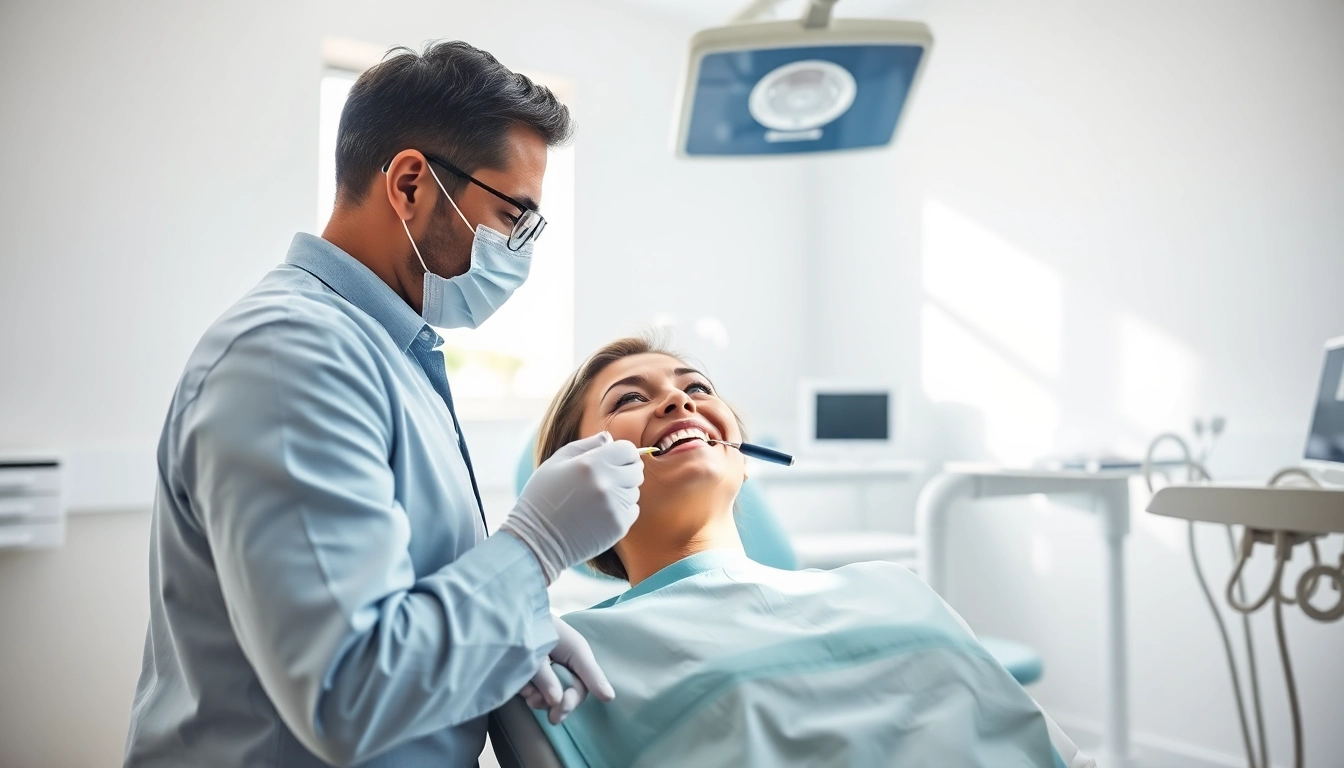Understanding the Importance of Checkups
Dental checkups are more than just a routine visit to the dentist; they are vital appointments designed to maintain and enhance your oral health. Regular checkups serve as a preventive measure, allowing your dentist to identify potential issues before they develop into serious problems. Understanding the nature and significance of these visits is essential for everyone, from young children to adults.
What Are Dental Checkups?
Dental checkups typically involve an examination of your teeth, gums, and overall oral health, often accompanied by X-rays and professional cleaning. During these appointments, dentists evaluate the state of your oral hygiene, inspect for cavities or decay, and provide necessary treatments. Checkups are tailored to individual needs based on age, oral health history, and lifestyle factors.
Why Regular Checkups Are Essential
The American Dental Association recommends visiting the dentist at least twice a year for adults and even more frequently for children, who are prone to cavities and other oral health issues. Regular checkups are essential for many reasons:
- Prevention of Serious Conditions: Early detection of dental issues such as cavities or gum disease can prevent more severe health concerns from developing.
- Professional Cleaning: Even with proper brushing and flossing, plaque and tartar can build up over time. Professional cleaning helps maintain oral hygiene, contributing to fresher breath and reducing the risk of gum diseases.
- Education on Best Practices: Dentists provide vital advice on improving dental hygiene and can offer dietary recommendations tailored for your oral health.
Common Myths About Dental Checkups
Misconceptions about dental checkups can prevent some individuals from attending them regularly. Here are some common myths:
- Myth 1: I don’t have any pain, so I don’t need to see a dentist.
- Myth 2: Dental checkups are only necessary if I have previous dental work.
- Myth 3: Dental treatments during a checkup are always painful.
In reality, many dental conditions may be asymptomatic in their early stages, making regular visits essential to maintaining good oral health.
Benefits of Consistent Dental Checkups
Preventing Dental Issues Early
One of the primary benefits of consistent dental checkups is the early identification of problems. Dentists can spot cavities, infections, or signs of gum disease that a patient may overlook. For instance, a small cavity can be easily treated if caught early, while ignoring it can lead to painful extractions or expensive restorative procedures. Additionally, checkups can help in recognizing other underlying systemic conditions linking oral health to overall health, such as diabetes or heart disease.
Maintaining Overall Oral Health
Regular dental visits contribute significantly to maintaining overall oral health. During checkups, dentists not only clean the teeth but also assess the condition of the gums and jaw. They can spot oral lesions or abnormal tissue growths that may require further investigation. This proactive approach helps ensure your mouth remains a healthy part of your body.
Building a Relationship with Your Dentist
Building a rapport with your dentist fosters a better understanding of your unique dental needs. Over time, your dentist becomes familiar with your dental history and can offer personalized advice or treatment. This relationship can enhance your overall dental experience, making you feel more comfortable during visits and leading to better compliance with treatment recommendations.
What to Expect During Your Checkups
Initial Examination Process
Upon arrival for a dental checkup, you will complete any necessary paperwork, including medical history updates. Your dentist will conduct a thorough examination, checking for signs of cavities, gum disease, and other dental issues. This evaluation may also include diagnostic imaging if needed.
Diagnostic Tools Used
Modern dental practices utilize various diagnostic tools to assess oral health comprehensively. Common tools include:
- X-rays: These images help detect issues not visible during a typical examination, such as decay lying beneath the surface of teeth.
- Intraoral Cameras: These devices allow dentists to view and capture images inside your mouth, enhancing the evaluation process.
- Oral Cancer Screening Tools: Early detection of oral cancer can significantly enhance treatment outcomes.
Post-Visit Recommendations
After completing the examination and cleaning, your dentist will provide tailored recommendations, which may include:
- Advice on improving oral hygiene practices at home.
- Recommendations for follow-up treatments if issues were detected.
- Dietary suggestions to better support your oral health.
Frequency of Checkups
Guidelines for Adults
For most adults, the recommendation is to schedule dental checkups every six months. However, specific circumstances may necessitate more frequent visits, such as a history of dental issues, smoking, or conditions like diabetes.
Checkups for Children and Teens
Children and adolescents should visit the dentist for checkups more often, usually every six months, to monitor their developing teeth and respond to any issues that arise. These early and frequent checkups build a foundation for good dental habits throughout their lives.
Factors Affecting Checkup Frequency
Several factors can affect how often someone needs to see the dentist, including:
- Age: Young children and older adults often require more frequent visits due to varying dental health needs.
- Personal Health History: Individuals with certain health issues, such as heart disease, may necessitate more regular dental appointments.
- Diet and Lifestyle: Dietary habits, habits such as smoking, and overall health can influence oral health and the need for regular checkups.
Making the Most of Your Dental Visits
Preparing for Your Checkups
Preparation for your dental appointment can greatly enhance your experience. Here are some steps you can take:
- List any questions or concerns you may have to discuss with your dentist.
- Update your medical history to inform your dentist of any medications or health conditions that may affect your oral care.
- Bring a complete list of any current medications you are taking.
Questions to Ask Your Dentist
During your appointment, make it a habit to ask your dentist questions that will help you take charge of your oral health. Some valuable questions include:
- What should my home dental care routine look like?
- How can I improve my diet to better support my teeth?
- Are there specific products you recommend for my oral health needs?
Follow-Up Care and At-home Practices
Following your dental checkup, adhere to recommended follow-up appointments or treatments. Additionally, maintaining a rigorous at-home care routine is crucial:
- Brush your teeth at least twice a day with fluoride toothpaste.
- Floss daily to remove plaque buildup between teeth.
- Limit sugary snacks and drinks to minimize the risk of cavities.
In conclusion, regular dental checkups are essential for maintaining not only your oral health but also your overall well-being. Embracing these appointments as part of your health routine ensures that you stay ahead of potential issues and maintain a radiant smile for years to come.



